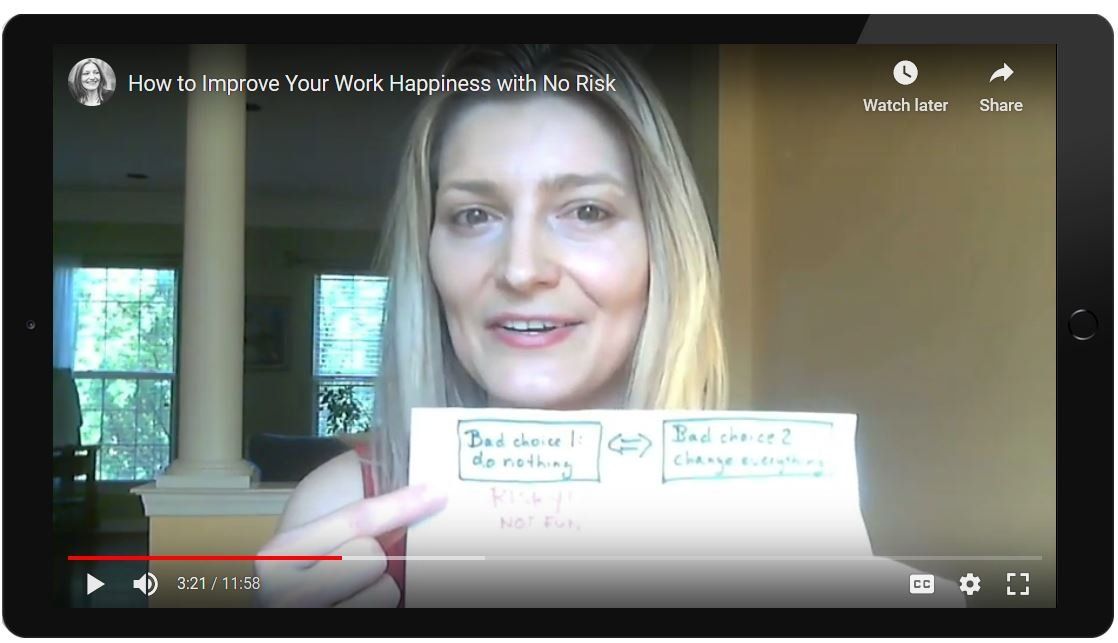How to Avoid Feeling Disappointed in Relationship
Unfortunately, people quite often have to deal with feeling disappointed in relationship. Here's what that can look like:
Person A: “You don’t love me!”
Person B: “What? How can you even say that?”
Person A: “You never tell me you love me.”
Person B: “I just got up at 4 am to drive you to the damn airport in the middle of the night. Why would I do that if I didn’t love you?”
Person A slams the car door and walks towards the terminal. ✈️
Person B is left wondering what just happened.
This small example illustrates…
Why people feel disappointed in relationships
The truth is that people often experience more disappointment in their most loving relationships than in any other connection.
This can be heart-breaking. For if someone truly loves you, shouldn’t they be able to avoid hurting you?
It is also a counter-intuitive experience. Really, wouldn’t it make sense to get along the best with those one cares about the most?
I believe there’s a reason why personal, intimate relationships are often more difficult to navigate than professional relationships. It comes down to a simple distinction:
The crucial distinction between agreements and expectations
I first learnt about this as a way to navigate the coaching relationship with a client.
However, it quickly became apparent to me that it is also useful for every other personal relationship we have, whether with friends, parents, or our significant other.
Simply put, we can either have expectations of others or create agreements with them.
In a professional relationship, people often have relatively clear agreements.
For instance, an employee agrees to spend a specified amount of time working on behalf of an employer, who in turn agrees to pay a certain amount of money.
While both sides in a professional relationship may still have unexpressed expectations (for instance, the employee may expect a raise or promotion in due time), the parameters of the relationship are defined by an explicit agreement.
Agreements are mutual and explicit.
When we have an agreement with someone, both sides know what they can legitimately expect from the other person.
Personal relationships, in contrast, are widely governed by expectations.
Someone may, for example, assume their friends will be happy to help them move (that’s what good friends do, right?).
Parents may expect their adult child to visit with them ever so often (isn’t that what good children do?).
The one thing you can do to experience more happiness in our relationship and to avoid disappointment is to learn how to navigate expectations more skillfully.
(Want to be able to refer to this material in the future? I've prepared a PDF of this article and an audio file of the video for you. To get these free resources, just fill out the email form at the end of the article.)
How expectations can lead you to feel disappointed in your relationship
The problem with expectations is that people often have wildly differing ones.
In fact, the more authentic and free our society becomes, the less we can assume that we know what others expect from us.
For instance, a century ago it was much clearer in the Western world how the different genders would interact with each other during courtship and in a relationship. It was also clearer how children would behave towards their parents.
Nowadays, we are free to find our own way (hooray!), a freedom that comes at the price of confusion.
While some expectations continue to be widely shared in society — such as the presumption that one’s partner will not date other people — many others are less apparent.
Let's consider some examples of how expectations may differ.
For instance, a woman (such as Person A in the example above) may expect that a man who genuinely loves her will explicitly tell her he loves her every day because that is what she observed in her parents when she was growing up.
Meanwhile, her partner, who grew up in a less emotionally expressive household, expects that she will understand that driving her to the airport in the middle of the night is his way of saying “I love you.”
One’s expectations are generally unspoken and unexpressed.
The person affected by them is often not even aware that one has them (and vice versa ).
This makes them so difficult to handle.
A 3-step process that can help you prevent relationship disappointment
Our culture romanticizes expectations.
To prove true love, one’s significant other is supposed to simply know what one wants from them, and act accordingly.
Given how different we all are, this would basically require people to develop telepathic skills in order to have a happy relationship.
I believe there is a more realistic way of not feeling disappointed in relationship. It includes the following 3 steps:
1. Becoming aware of your own expectations
Oftentimes, people are not even aware of what their expectations are. All they know is that they somehow feel resentful towards, for example, their romantic partner.
If this happens to you, dig deeper and you may find that your partner has violated one of your expectations.
For instance, when it comes to planning your weekend, you may expect your partner to watch a movie with you. When your partner then spends the weekend doing other things, you may find yourself feeling resentful.
2. Verbalizing expectations
Once you are aware of your expectations regarding a specific event, verbalize them to your partner. Ask your partner to do the same.
While you might assume that you will watch a movie together, your partner may have the expectation of having time to meditate and catch up with friends on the weekend.
Depending on what your expectation is, verbalizing it can be scary.
Sometimes expressing an expectation can make people feel vulnerable and tender because the other person could say no. Still, taking emotional risks of this nature can both lead to deeper intimacy and to getting one’s needs met.
3. Coming to an express agreement
This is true anywhere in life and it’s certainly true in personal relationships. The more we move from expectations to agreements, the less likely we are to experience disappointments in our relationships. (Side note: it also helps to learn how to express one's love skillfully, but that's a different discussion.)
At the same time, letting go of expectations in relationships doesn’t mean letting go of the hope that you can get what you want.
In fact, by expressly asking for what you want from the people closest to you and creating agreements with them, you’re much more likely to get what you want — whether that’s hearing the words “I love you” more often, or being driven to the airport at 4 am in the morning.
Would you like me to share more helpful resources with you (starting with a PDF and audio version of this article so you can revisit it at any time)?
If so, let's become email friends! Just add your details below and I'll keep you in the loop.
I respect your privacy.
This article was first published here (Elephant Journal).




